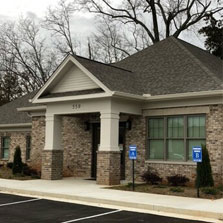 Obstructive sleep apnea (OSA) is a potentially dangerous sleep disorder in which there is partial or complete closure of the upper airway during sleep. This is usually noticed by the bed partner as a struggle to breathe or an actual stoppage of breathing during sleep. When this happens, the brain realizes the lack of air, arouses from sleep, and sends a shock wave, which is essentially an adrenaline rush, to save the patient. These Brain Arousals are generally too short to remember the next day, but their effects are potentially devastating.
Obstructive sleep apnea (OSA) is a potentially dangerous sleep disorder in which there is partial or complete closure of the upper airway during sleep. This is usually noticed by the bed partner as a struggle to breathe or an actual stoppage of breathing during sleep. When this happens, the brain realizes the lack of air, arouses from sleep, and sends a shock wave, which is essentially an adrenaline rush, to save the patient. These Brain Arousals are generally too short to remember the next day, but their effects are potentially devastating.
This video describes more about OSA and some treatment options.
If Left Untreated, OSA may result in:
- High blood pressure
- Diabetes
- Depression
- Excessive sleepiness
- Fatigue
- Memory Loss
If you are sleepy during the day or have high blood pressure, simple tests can evaluate your risk of sleep apnea. A sleep study is necessary to diagnose sleep apnea.
Ultimately, patients with Untreated OSA have a higher risk of life-threatening conditions such as:
- Heart Attack
- Heart Failure
- Stroke
- Atrial Fibrillation
- Premature Death
Even those who “just snore” may be at risk for these disorders. There is evidence to suggest that people who snore loudly have a higher risk of atherosclerosis, heart disease, and hypertension.
Patients may not stop breathing during sleep yet still have sleep apnea! All patients, regardless of age, with high blood pressure who either snore loudly or are sleepy during the day should be considered for a sleep apnea evaluation.
Make an appointment with one of Roy Sleep Medicine’s physicians to discuss! Remember, CPAP is not the only option for treatment!
References:
- Am Fam Physician. 2002 Jan 15; 65(2):229-237
- http://newsblog.mayoclinic.org/2008/07/21/heart-attack-and-sleep-apnea-study/
- J ClinEndocrinolMetab85: 1151–1158, 2000
- www.resmed.com/us/clinicians/about_sleep_and_breathing/comorbidities/sdb-and- diabetes.html?nc=clinicians
- www.sleepfoundation.org/article/sleep-topics/depression-and-sleep
- www.nih.gov/news/health/apr2010/nhlbi-08.htm
- Circulation. 2004 Jul 27;110(4):364-7.
- Clin Chest Med. 1998 Mar;19(1):99-113
- Diabetes Educ. 2007 May-Jun;33(3):475-82.









KEEP IN TOUCH WITH US